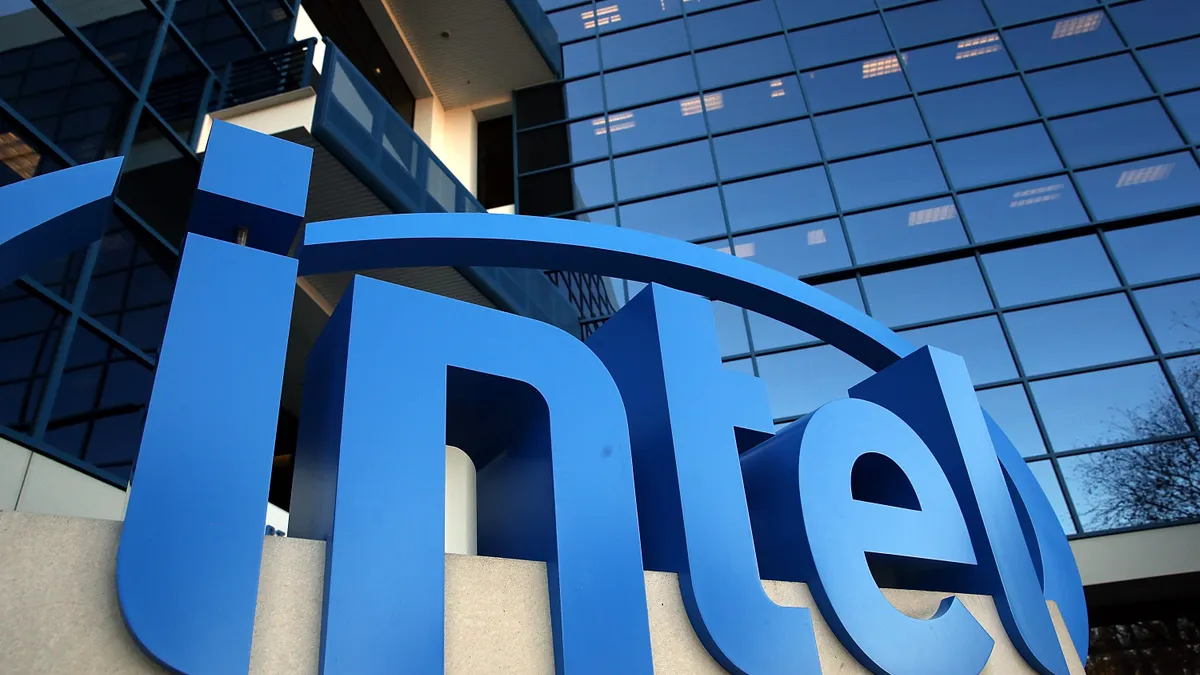Dive Brief:
- Intel has adjusted its supplier requirements to generally prohibit "any human trafficked or involuntary labor" in its supply chains.
- The move follows backlash in China after Jackie Sturm, Intel's vice president and general manager of supply chain operations, sent an annual letter to suppliers in December that prohibited sourcing goods or labor from the country's Xinjiang region, according to Reuters. All references to Xinjiang were removed from the letter.
- Intel plans to update its Global Human Rights Principles — which it requires suppliers to follow — in 2022, Sturm said in the letter.
Dive Insight:
Intel does not use any labor or source goods or services from the Xinjiang region, the company said in its 2020 corporate statement on combating modern slavery.
But the company apologized for including the Xinjiang advisory in the annual letter after Intel faced backlash in China, where it employs more than 10,000 workers, Reuters reported.
The letter to suppliers was sent as U.S. President Joe Biden signed a bill banning imports from Xinjiang, citing human rights abuses against the Uyghur people in the region. U.S. Customs and Border Protection had been detaining all cotton and tomato products originating in Xinjiang’s Uyghur Autonomous Region since last January.
The U.S. State Department in July reported "widespread, state-sponsored forced labor and intrusive surveillance, forced population control measures and separation of children from families, mass detention, and other human rights abuses amidst ongoing genocide and crimes against humanity" in the region. China has denied the allegations.
The crisis facing the people in the Western China region hasn't just gained broader awareness as a humanitarian crisis — it's also gained urgency as a potential supply chain risk for U.S. companies that source from the region, especially under the new import ban.
And Intel, whose technology allegedly has been used in Chinese state surveillance, isn’t the only multinational corporation taking criticism over its handling of the humanitarian crisis. Caught in a similar furor over allegedly removing Xinjiang-sourced products from the Sam’s Club app, Walmart on Wednesday denied it had done so and claimed it had been "a misunderstanding."
The Council on American-Islamic Relations on Monday urged Tesla CEO Elon Musk to close the EV-maker's new showroom in the region, calling it "economic support for genocide." A large number of Uyghur people practice Islam.
"No American corporation should be doing business in a region that is the focal point of a campaign of genocide targeting a religious and ethnic minority," said Ibrahim Hooper, the council’s spokesperson, in a statement.
This story was first published in our Procurement Weekly newsletter. Sign up here.














